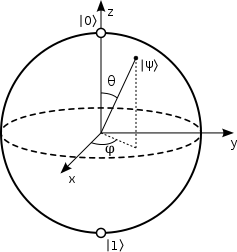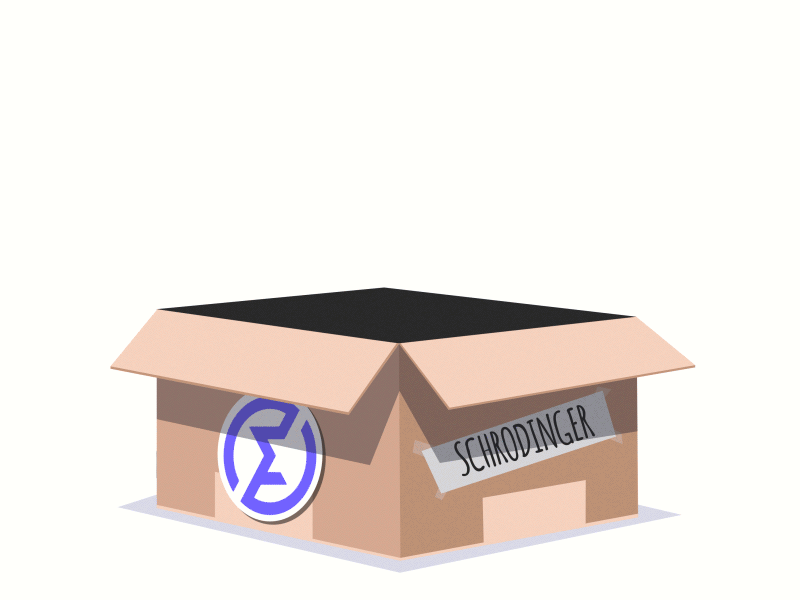Quantum Computing 101 - Part One
Quantum Physics studies the behavior of matter & energy at the molecular, atomic & nuclear levels and it will have a huge impact on secure computing.

The word “quantum” can sound scary, weird and confusing. While some people will tell you that it’s not, I am here to tell you that it is confusing and simply “weird”. With this article I want to reach out to you and provide you with an essence of some of the strangest things is the universe and how our cybersecurity will be affected by it. So open up the doors of imagination in your brain and let the essence of quantum cryptography change your way of thinking about things, not the big things though, I mean the small things because those are what really matter in quantum computing.
A Short Introduction To Quantum Physics
Quantum Physics is the study of the behavior of matter and energy at the molecular, atomic, nuclear, and even smaller microscopic levels. In the early 20th century, it was discovered that the laws which govern macroscopic objects do not work in the same way in such small realms. This idea will destroy your concept of object and physics in our world, if you love Newton these ideas are going to hurt you in fact.
I ask you to bare with me here. In the small realm or should I say the super small realm things behave and act differently. Let’s talk about the electron, I think we all know what they are and if you don’t remember, they are negatively charged and stay outside the nuclease of an atom. Quantum mechanics explains behaviors of these sub atomic particles. Now let’s look at photons, these are individual particles that carry light. But what is light? Is it a wave or a particle ?
The correct answer is that it is both now that might confuse you and that’s perfectly fine, it takes time to wrap your head around it. In Physics and Chemistry wave-particle duality is a concept that all mater and energy exhibit both wave and particle like properties. There is one more concept that I want you to know, It’s called the Heisenberg uncertainty principle, which states that locating a particle in a small region of space makes the momentum of the particle uncertain.
This can easily be explained using a weird analogy called Schrödinger's cat.
Imagine a bottle of poison in a box, then I put a cat in that box and I close the box so there is no way to see inside. Now I ask you is the cat dead or alive ? The cat is dead and alive at the same time because we won’t know what’s the cats "state" is unless we open the box (aka measure it) now we call that state a superposition.
The last concept I want you to grasp is quantum entanglement, a physical phenomenon which occurs when pairs or groups of particles are generated, interact, or share spatial proximity in ways such that the quantum state of each particle cannot be described independently of the state of the others.
A quantum state must be described for the system as a whole, what this means is that if I have two electrons that are entangled and one of them is spinning clockwise and the other is spinning counter clock wise, if I change the spin of the first particle then the spin of the other particle will change accordingly without having any physical connection and this is one of the astonishing concepts in quantum mechanics, and as close as we will ever get to real magic.
Classical Computers & What They Can't Do
Classical computer are the computers that we use right now, like the one you are reading this article on. These computers are amazing but we are now reaching the physical limits of these computers because we are reaching the point where transistors are so small that they will soon be as small as a particle. When that happens quantum phenomena will rule them and we need to fix this because imagine buying a computer and then next year it’s still the highest power computer and then the year after that we reach a technological recession.
There is also another problem that classical computers, even a bunch of them clustered together (Super Computer), cannot solve or just take a really long amount of time to solve. For example if we have ten tables in a restaurant with ten chairs around each table and we have ten friends. If want to figure out what are all the different possible combinations of your ten friends sitting in different seats on those ten tables, the problem is complex enough that classical computer cannot solve it.
I mean a classical computer can’t even simulate a molecule of caffeine to study its effect on our brain, and this is why quantum computers will help almost every industry. Classical Computers are also bad at optimization problems. Although I don’t think a quantum computer will replace your everyday computer, but they certainly will replace supercomputers and IT infrastructure of large organizations.
Q-Bits
We all know that our current computers (classical computers) work with bits and that these bits can be represent by a 1 or a 0, or on and off. They can basically be almost anything that has 2 opposite properties. In a Quantum machine however we use Q-bits or Quantum Bits, these bits can be 1 and 0 but what’s special about them is that they can be in more than one state they can be in both 0 and 1 at the same time or anything in between 0 and 1. This is a superposition like that cat one we covered earlier, where we don’t know what’s it's state is but we will as soon as we measure the Q-bit when it collapses into a 0 or 1 with a 50% probability.
This is actually amazing and you can see the block sphere below for visual representation, now as you see the top is |0> and the bottom is |1> and they can be in a combination of these : "|0>+|1>". Now using this alone we can do a lot of things, but you might be confused, you might be thinking even if you use a Q-bit to do many calculations at once as soon as you measure it.

To Be Continued!
Sorry guys but I will leave it here because I want to make you guys excited about this and this is my way of excitement, leaving you at a cliff hanger. Really though I am still learning about this subject myself, writing about it is my way of getting my head around it and I need to re-read a little more before I come back with part two.
For now you can tweet at to me about quantum computing using @k4b00m and I promise to release the next article very soon. If this whole thing doesn't make sense then remember what Richard Feynman once said "if you understand Quantum mechanics you don’t understand Quantum mechanics".
Watch this video for more help on this - video - I will also go into Quantum Encryption and how to break that encryption so we have some pretty ground to cover ahead. Despite its small size this article is pretty big and a lot to think about.


